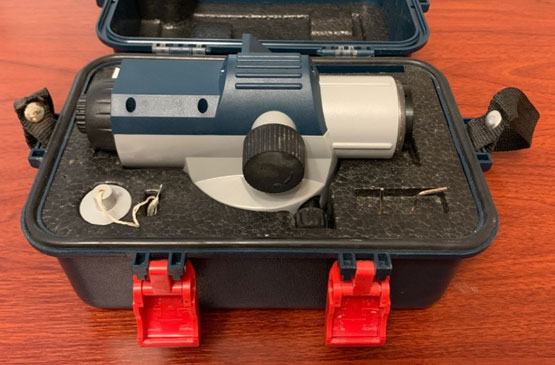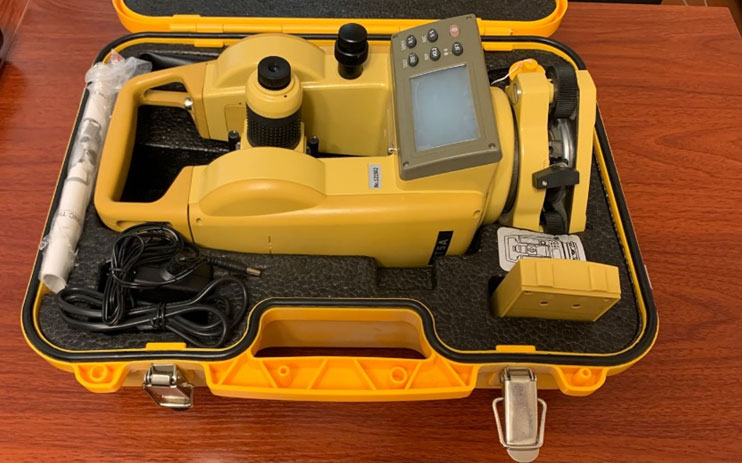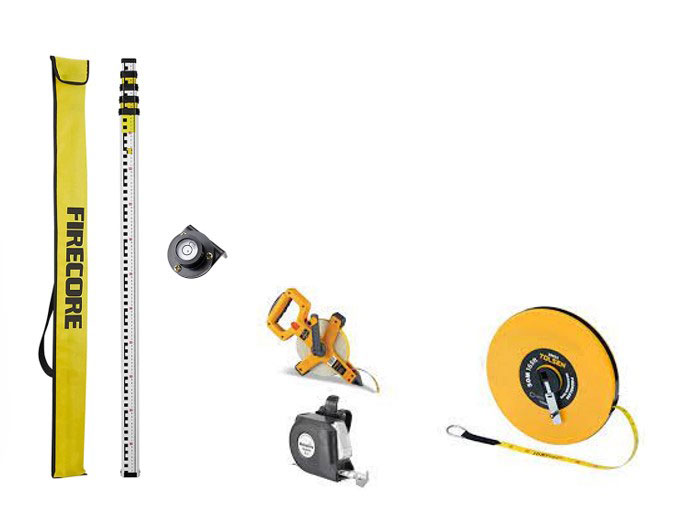Undergraduate Research at Khazar University is your time to explore. It’s your time to find your passions and new areas of interest. It’s your time to start making your mark.
In joining Undergraduate Research at Civil engineering department, you’re joining an exhilarating, collaborative culture dedicated to creativity, experimentation, and discovery.
1. Civil Engineering Laboratory
In undergraduate research at Civil laboratories, you’ll collaborate with a research mentor and potentially other students. Your mentor will guide you through your research journey as you absorb new knowledge, improve your problem-solving skills, and tackle interactive, discovery-based experiences.
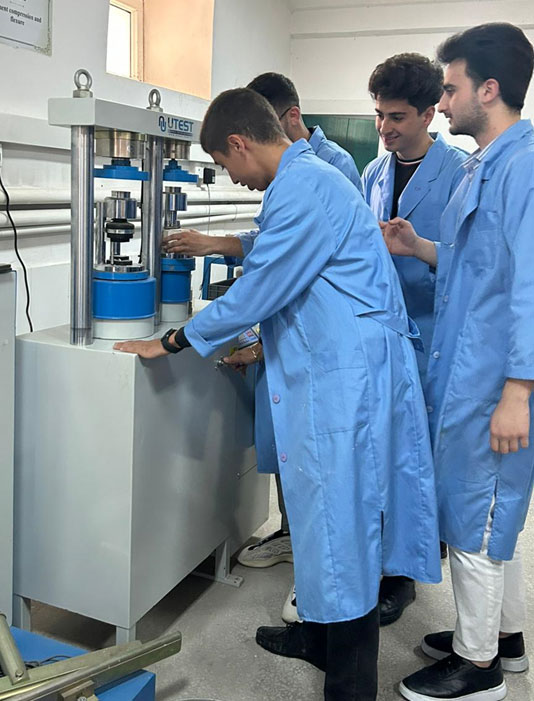
You’ll be introduced to the ever-evolving world of academic research and learn the numerous components involved in the process. As you progress further into your research journey, your knowledge base will grow deeper and your research contributions will grow larger.
Undergraduate research provides a unique channel for exploring your particular academic discipline that you just can’t get in the classroom. You’ll engage with material on a deeper level and refine your knowledge in practical applications. Books are great, but the fun lies in doing.
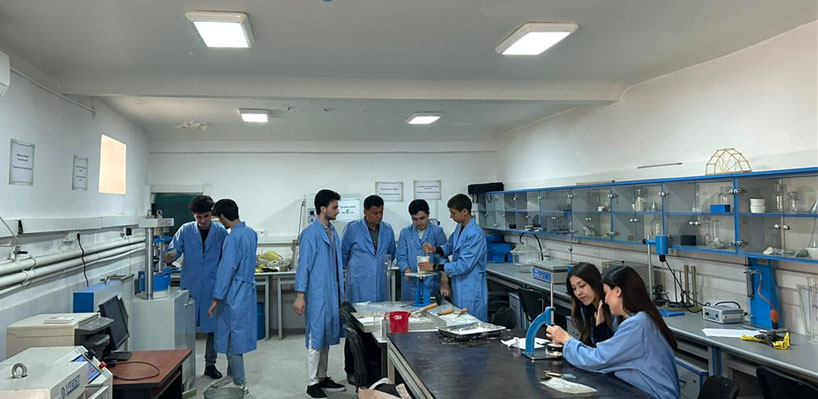
Our course load and schedule will determine the hours per week you spend researching. Depending on your time commitments and how long you engage in undergraduate research, you might not be able to make an original research contribution. But you will discover exciting new things about your academic area of interest that may very well shape the professional path you take in the future.
Models of building components and typical civil engineering structures and standard construction materials are available in this laboratory for a thorough understanding of the subject. More than 35 wooden and steel models and charts are obtained for the laboratory.
Testing available in civil laboratory:
2. Soil Laboratory
Soil testing involves the analysis of soil samples to determine their characteristics, such as texture, stability, plant nutrients, fertility, acidity or alkalinity, or toxicities and contaminants. The results from soil testing can be important for many purposes, ranging from agricultural and horticultural productivity through geotechnical and engineering to environmental forensics.
Our laboratory management guidelines follow the highest standards of quality. Student groups are given the charge to explore and identify a “Soil” collected from a unique landscape.
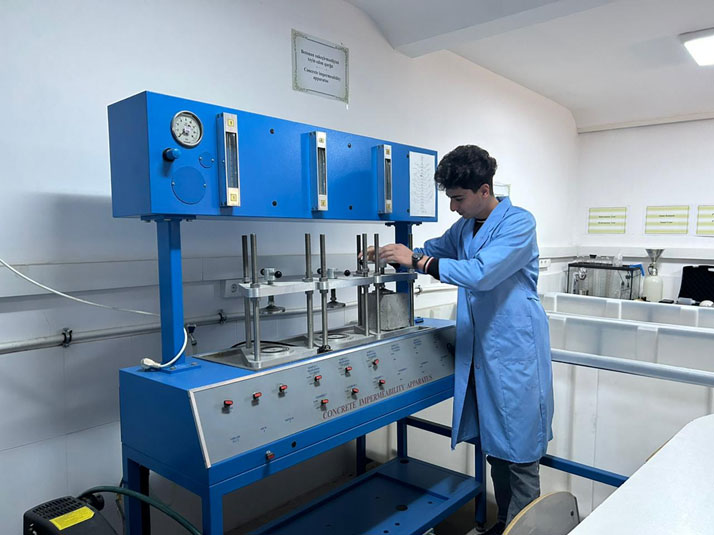
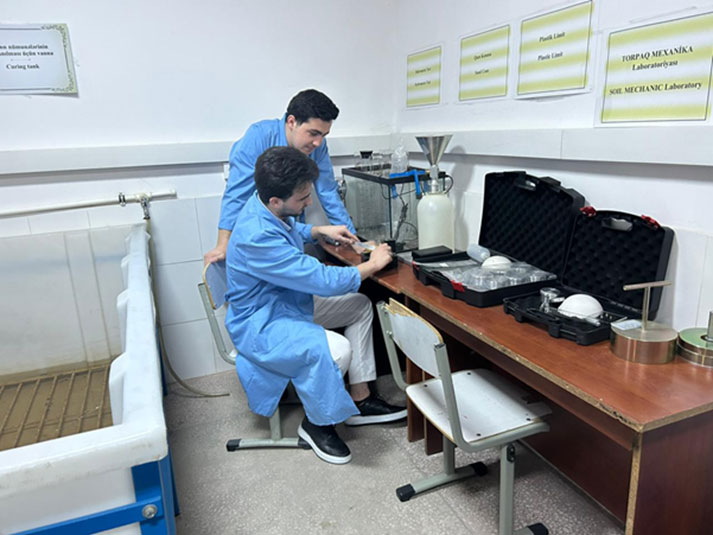
And we also provide an opportunity to familiarize students closely with international soil projects and how to accurately calculate according to international standards.
3. Surveying Laboratory
The laboratory of Surveying is well equipped with all the required instruments and tools that are helpful in the overall understanding and practical knowledge of a student. Students learn techniques for gathering field data with both traditional and modern instruments.
Surveying Lab offers additional experience in fundamental land surveying measurement methods for surveying courses, including precision steel taping methods to perform horizontal measurements, digital theodolites to perform angular measurements and traditional and automatic levels for elevation measurements.
Furthermore, students have opportunity to use total station equipment, which enables horizontal, vertical and angular measurements to be made in one operation.

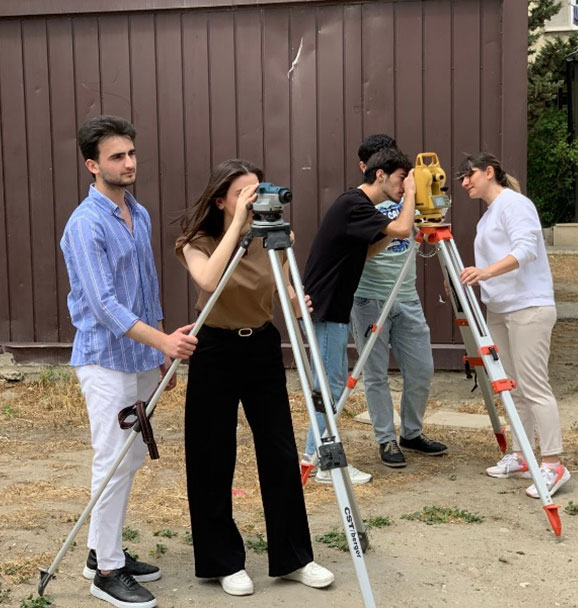
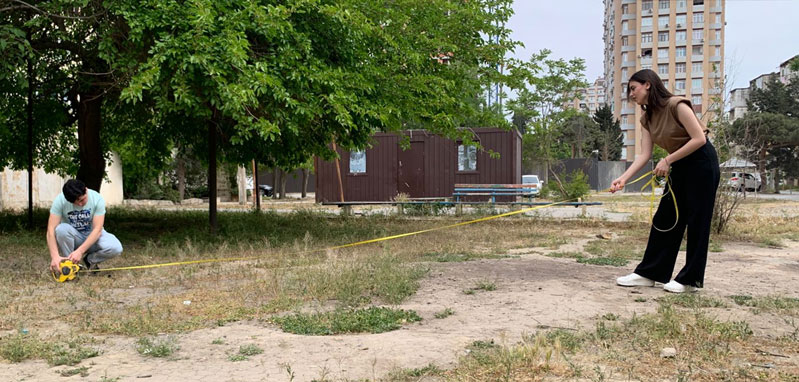
Surveying Laboratory is equipped with the following instruments/equipments:
